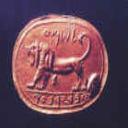Yahoo Answers is shutting down on May 4th, 2021 (Eastern Time) and beginning April 20th, 2021 (Eastern Time) the Yahoo Answers website will be in read-only mode. There will be no changes to other Yahoo properties or services, or your Yahoo account. You can find more information about the Yahoo Answers shutdown and how to download your data on this help page.
Trending News
Jehovah's Witnesses and other Christians: Why are mere men called Lord in the bible?
Numbers 11:28 (King James Version)
28And Joshua the son of Nun, the servant of Moses, one of his young men, answered and said, My lord Moses, forbid them.
Genesis 18:12 (King James Version)
12Therefore Sarah laughed within herself, saying, After I am waxed old shall I have pleasure, my lord being old also?
Trish: Jehovah's Witnesses don't call Jesus Jehovah. You are confused.
35 Answers
- 1 decade agoFavorite Answer
Jehovah's Witnesses are Christians. Not just believers in Christ, but also obedient followers of Christ.
The term "lord" itself merely means owner or master in the Bible. It does not mean God, and it is not God's Name, although many Bibles wrongly translate God's Name as LORD.
That translation really hides God's real Biblical name, his self-given name YHWH, anglicized as Jehovah.
A lot of confusion would be avoided if Bible translators correctly used God's Name rather than the mere title, "Lord" or "LORD."
Source(s): The HOLY Bible - David RLv 41 decade ago
The word ‘Lord’ has many different meanings. In the verse that you quoted Numbers 11:28 the word Lord means “to rule”, while the text from Gen 2:4 (LORD) means self Existent or eternal; Jehovah. It can also mean ‘supreme in authority or controller. The meaning will differ according to the context in, which it is used.
In the KJV the word LORD when in all cap’s is always referring unto the One True God, the Father of Christ.
Private emails accepted.
David R
- 1 decade ago
like the person above me said, it is a title of honor. The term "Lord" has been used... well as we see even in biblical times. However I want you to realize something. I don't know if this is used in all bibles, but I think I can say a lot of them. Whenever the old testament refers to the Lord as in God, the word "Lord" is always all uppercase like "LORD." We see this many, many times.
Psalms 42:8- By the LORD decrees his loyal love, and by night gives me a song, a prayer to the living God.
Genisis 11:5- But the LORD came down to see the city and the tower that the people were building.
- B Knott WilderedLv 71 decade ago
The same reason mere men are called lord, or Lord, outside the Bible. It is a title that can signify many things.
- How do you think about the answers? You can sign in to vote the answer.
- BarneyLv 61 decade ago
Because the word Lord in the Bible does not mean a divine being. Consider the following and the many scriptures cited. You can look them up in your own Bible.
The Greek and Hebrew words rendered “lord” (or such related terms as “sir,” “owner,” “master”) are used with reference to Jehovah God (Eze 3:11), Jesus Christ (Mt 7:21), one of the elders seen by John in vision (Re 7:13, 14), angels (Ge 19:1, 2; Da 12:8), men (1Sa 25:24; Ac 16:16, 19, 30), and false deities (1Co 8:5). Often the designation “lord” denotes one who has ownership or authority and power over persons or things. (Ge 24:9; 42:30; 45:8, 9; 1Ki 16:24; Lu 19:33; Ac 25:26; Eph 6:5) This title was applied by Sarah to her husband (Ge 18:12), by children to their fathers (Ge 31:35; Mt 21:28, 29), and by a younger brother to his older brother (Ge 32:5, 6). It appears as a title of respect addressed to prominent persons, public officials, prophets, and kings. (Ge 23:6; 42:10; Nu 11:28; 2Sa 1:10; 2Ki 8:10-12; Mt 27:63) When used in addressing strangers, “lord,” or “sir,” served as a title of courtesy.—Joh 12:21; 20:15; Ac 16:30.
Source(s): Insight on the Scriptures--Lord - JedidoctorLv 51 decade ago
Devout Catholic- I was a Catholic myself, but after much study and research, I left the church.
I found that Jehovah's Witnesses are the Christians that believe in the doctrines that early, 1st Century Christians believed in.
The word 'Lord' in the Bible does not mean necessarily mean a divine being. The Greek and Hebrew words rendered “Lord” can mean “sir,” “owner,” “master”. Even today, in the UK, many men are called 'Lord'.
Yes, Jehovah's Witnesses accept Jesus as Lord. However, the Father, Jehovah, is referred to as Sovereign Lord in the scriptures.
Source(s): One of Jehovah's Witnesses - 1 decade ago
Lord... is a masculine term used in expressing servitude and obedience toward. It is also reference to a husband though not in a kingship role but rather a submission role. One that allows a relationship respect and grace. Always weighing outer relationships as a secondary role.
- JP (Jan)Lv 61 decade ago
The Hebrew word for lord when addressing a man was "adoni" meaning lord, master, etc.
The Hewbrew word for LORD used for God is "yahweh" meaning Jehovah.
The English translates both as Lord, but the Hebrew had two distinct words, one for men and one for God.
- An Earthly HopeLv 61 decade ago
Your question also proves that Lord is a title, not a name. When Jesus said in the Lords prayers, "Let your name be sanctified...." he was speaking of God's name Jehovah, his fathers name.
- By FaithLv 71 decade ago
LORD
LORD. The rendering of several Heb. and Gk. words, which have different meanings:
1. Jehovah (yahweh; Heb. YHWH, "self-existent"). This is used as a proper name of God and should have been retained in that form by the translators. See (The) LORD; Yahweh.
2. Lord (Heb. 'Adon), an early word denoting ownership; hence, absolute control. It is not properly a divine title, being used of the owner of slaves (<Gen. 24:14,27; 39:2,7>, rendered "master"), of kings as the lords of their subjects (<Isa. 26:13>, "master"), of a husband as lord of the wife <Gen. 18:12>. It is applied to God as the owner and governor of the whole earth <Ps. 114:7>. It is sometimes used as a term of respect (like our sir) but with a pronoun attached ("my lord"). It often occurs in the plural.
3. Adonai (Heb. 'adonay), emphatic, "the Lord"; many regard it as the plural of no. 2. It is used chiefly in the Pentateuch-- always where God is submissively and reverently addressed <Exo. 4:10,13; Josh. 7:8> and also when God is spoken of (<1 Kin. 13:9; 22:6>; etc.). The Jews, out of a superstitious reverence for the name Jehovah, always pronounce Adonai where Jehovah is written. The similar form, with the suffix, is also used of men, as of Potiphar (<Gen. 39:2>, "master") and of Joseph <42:30,33>.
4. Lord, Master (Gk. kurios, "supreme"), he to whom a person or thing belongs, the master, the one having disposition of men or property, as the "owner of the vineyard" (<Matt. 20:8; 21:40; Mark 12:9; Luke 20:15>, see marg.); the "Lord of the harvest" <Matt. 9:38; Luke 10:2>; the "master of the house" (<Mark 13:35>, see marg.); "Lord of the Sabbath" <Matt. 12:8; Mark 2:28; Luke 6:5>, as having the power to determine what is suitable to the Sabbath, and of releasing himself and others from its obligation. The term is also a title of honor sometimes rendered "sir" and is expressive of the respect and reverence with which servants salute their master (<Matt. 13:27; Luke 13:8; 14:22>; etc.); employed by a son in addressing his father <Matt. 21:29>; by citizens toward magistrates <27:63>; by anyone wishing to honor a man of distinction (<8:2,6,8; 15:27; Mark 7:28>; <Luke 5:12>; etc.); by the disciples in saluting Jesus, their teacher and master (<Matt. 8:25; 16:22; Luke 9:54; John 11:12>; etc.). This title is given to God, the ruler of the universe, both with the article ho kurios (<Matt. 1:22; 5:33; Mark 5:19; Acts 7:33; 2 Tim. 1:16,18>; etc.) and without the article (<Matt. 21:9; 27:10; Mark 13:20; Luke 2:9,23,26; Heb. 7:21>; etc.). The title is also applied to Jesus as the Messiah, since by His death He acquired a special ownership of mankind and after His resurrection was exalted by a partnership in the divine administration <Acts 10:36; Rom. 14:8; 1 Cor. 7:22; 8:6; Phil. 2:9-11>.
5. Baal (Heb. ba`al, "master"), applied only to heathen deities, or to the man as husband, and so on, or to one specially skilled in a trade or profession. See Baal.
6. Other and less important words in the original are rendered "Lord," such as mare', "master" <Acts 2:47>, an official title, and seren, a Philistine term found in Joshua, Judges, and 1 Samuel, where "the lords of the Philistines" are mentioned.
bibliography: E. Lohmeyer, Kyrios Christos (1928); W. Bousset, Kyrios Christos (1935).
(from New Unger's Bible Dictionary)
(originally published by Moody Press of Chicago, Illinois. Copyright (C) 1988.)
- AmyBethLv 41 decade ago
Lord has a few meanings but it can denote a prince or someone superior. Lord is a term we use to call our God (you should not say the Lord's name in vain). But it's also a term used to called leaders and superiors. (Moses was a leader of the Israelites)
Source(s): Catholic School











